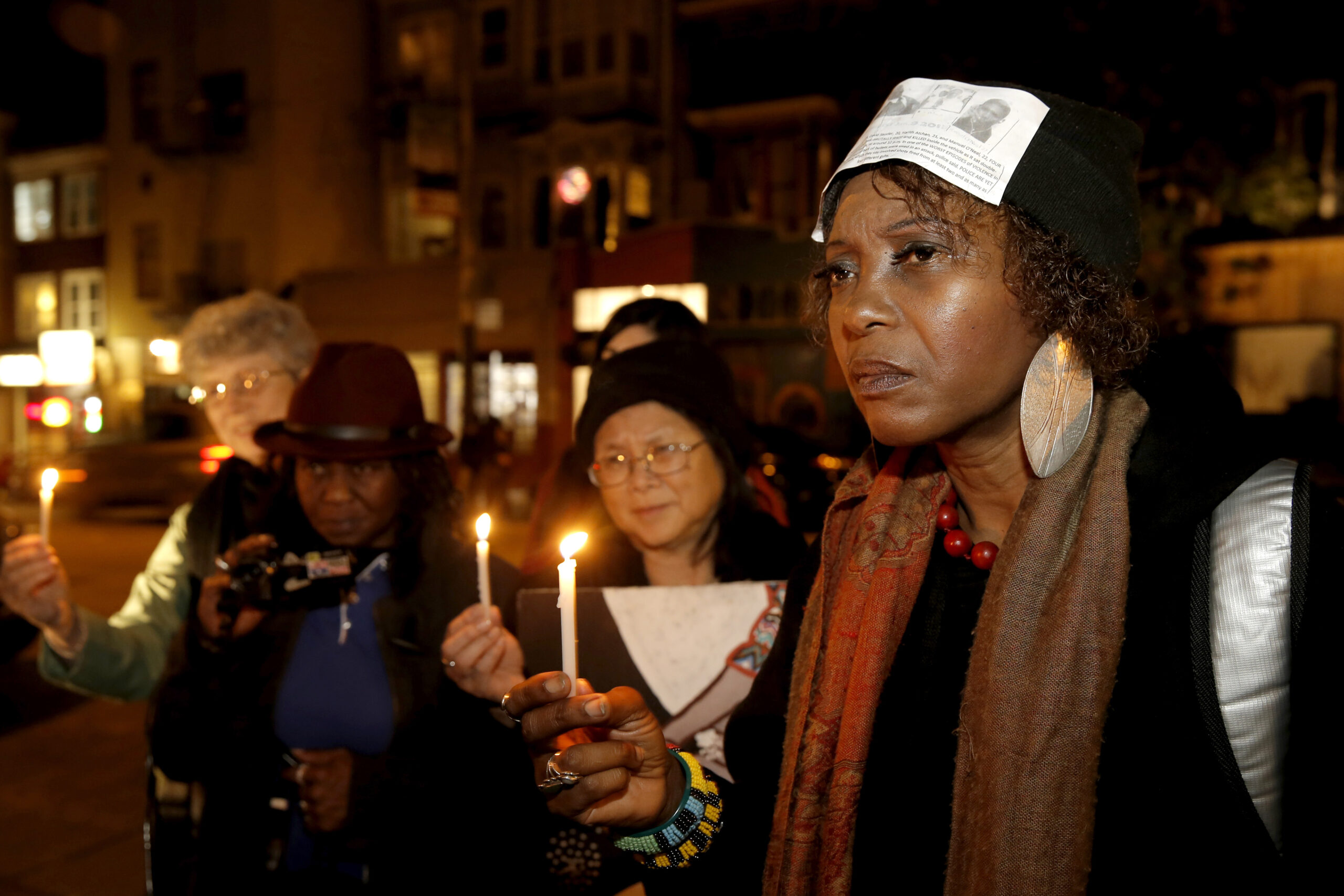A Hayes Valley shooting that left four young men dead in a bullet-riddled car made Jan. 9, 2015, one of the most violent nights San Francisco had seen in years.
SF police called it a case of Fillmore District gang retaliation, the culmination of a long-running feud.
Just about eight years later, the preliminary hearing for sole defendant Lee Farley began on Wednesday, meaning he’s finally close to getting his day before a jury on four counts of murder as well as weapons and gang charges.
The SF District Attorney’s Office has changed hands a few times since charges were filed. But this could be the first trial with gang enhancements under Brooke Jenkins, who publicly criticized her predecessor Chesa Boudin for eschewing similar charges in a gang shooting that killed one of her young family members.
It’s also a test for new law that narrows the kind of expertise needed to prove gang affiliation—a standard cited in an appellate ruling to scrap the stepped-up gang charges against Farley.
Assembly Bill 333, passed in 2021, changed the standard of proof for gang enhancements—charges with harsher penalties tacked on to other counts—by barring gang experts unless they know about the specific crimes in question. With another recent state law that limits the use of lyrics to prove gang affiliation, the legislation upends much of how state courts use police testimony.
That meant the DA needed people with direct knowledge of gang connections to testify at Farley’s preliminary hearing. Nathan Quigley, the prosecutor on the case, said he plans to call witnesses instead of police experts to prove that there were three previous cases committed for the benefit of a gang.
Meanwhile, the victim’s families—many of whom attended Wednesday’s hearing—deny law enforcement claims that gang violence led to the killings of Manuel O’Neal, 22, Harith Atchan, 21, David Saucier, 20, and Yalani Chinyamurindi, 19.
The initial case cited previous convictions as evidence for applying the gang enhancements. But the appeals court ruling on gang ties sent the case back to state court to start from scratch.
The DA then had a choice: proceed to trial on the murder charges or redo the preliminary hearing to add the gang charges under the state’s new standard of evidence.
That the prosecutors opted for the latter suggests their case wasn’t strong enough to take to trial, according to Farley’s attorney Peter Fitzpatrick.
“I think it shows that their case is very weak: They think they need the gang evidence to secure a conviction,” Fitzpatrick said. “We know that it prejudices juries, and so they are fighting to keep it.”
A federal case stemming from the same incident echoed the state’s claims that three of the 2015 victims—O’Neal, Atchan and Saucier—were members of Fillmore’s Mac Block, which was feuding with a rival gang called Page Street.
That narrative was laid down by SFPD gang expert Sgt. Thomas Moran.
“I understand that the ‘beef’ between Mac Block and Page Street began over a girl around 2011 or 2012,” he said in court documents.
But Martin Sabelli, a defense attorney who specializes in gang cases, said that even with the new law experts remain problematic.
“The problem with a gang expert is they essentially synthesize informants,” he said. “They often use SFPD experts, and I say ‘experts’ very loosely.”
